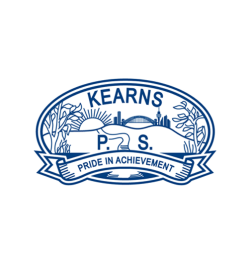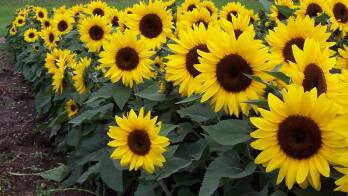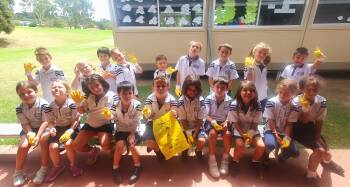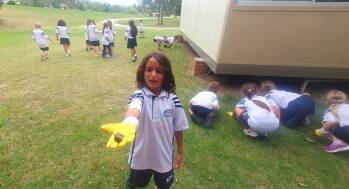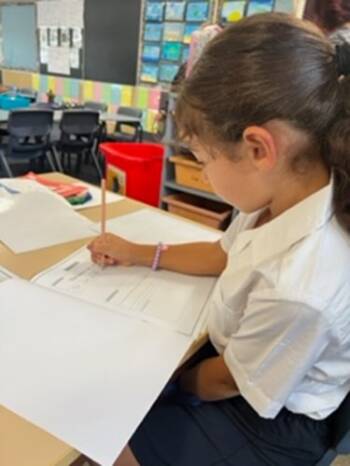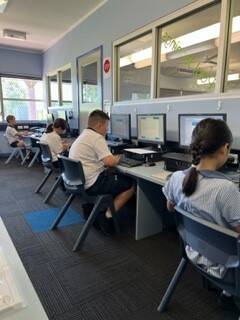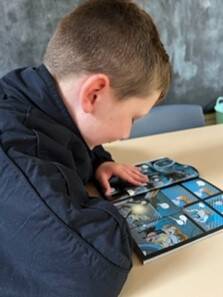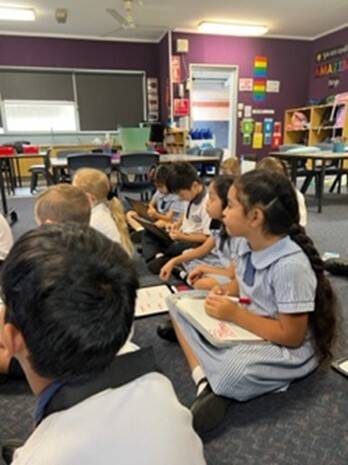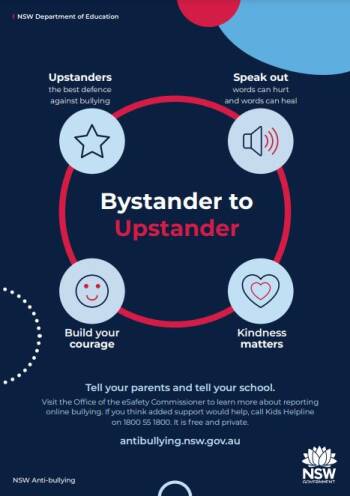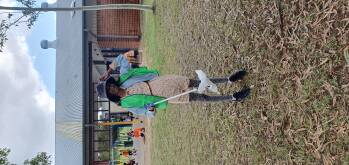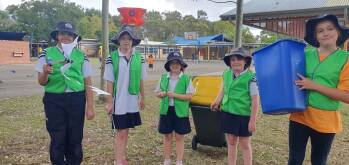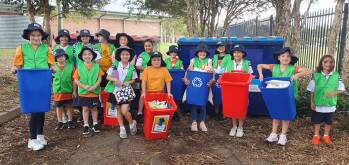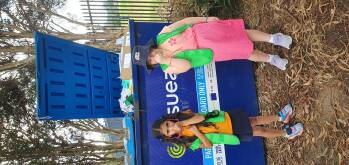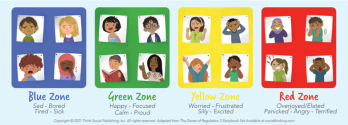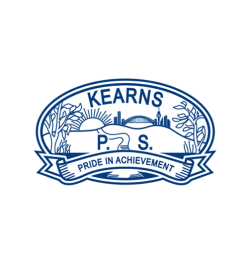ACKNOWLEDGEMENT OF COUNTRY
We acknowledge the Dharawal people, the Traditional Custodians of the land where we live, learn and play. We thank them for caring for the environment. We would like to pay our respects to Elders past and present, for they hold the knowledge, culture and traditions that we value in our school. Let us all recognise the continuation of culture and connection that Aboriginal people have to Country.
A MESSAGE FROM MS PHILLIPS
It is hard to believe that we are almost at the end of Term 1! Students continue to show their teachers daily what wonderful learners and keen participants they are in all activities.
I wish to extend my huge appreciation to all our amazing students, staff and parents who have been managing numerous changes to timetables throughout this term. We do have a great partnership and I am certainly proud of the effort that our teachers go to in order to ensure that school routines run as seamlessly as possible. Students are really demonstrating that they can manage unexpected changes to situations while continuing to follow the values of Safety, Respect and Responsibility.
Thank you to all the parents, carers, students and teachers who have been working hard in developing Personalised Learning Pathways (PLPs) for our Aboriginal students. PLPs like many of the other personalised learning plans we develop, help us tailor support for each student’s learning, helping them realise their goals and potential. It was wonderful to see such a strong parent attendance at Parent Teacher interviews. This is a powerful way to contribute to your child’s education.
At Kearns Public School, we value parents as partners in education. Our P&C is a fantastic way for parents and families to help our school reach its aspirations. New members are always welcome, please consider joining the Kearns Public School P&C.
Attached to this newsletter is the Department of Education’s School Community Charter. The charter outlines the responsibilities of parents, carers, educators and school staff in NSW public schools to ensure our learning environments are collaborative, supportive and cohesive. Let’s work together to make sure Kearns Public School remains a place where everyone is treated with respect and where we promote tolerance and understanding.
The last day for Term 1 is Thursday 6 April 2023. School resumes for all children on Wednesday 26 April 2023.
Wishing you a safe and restful holiday!
APC&I
Dear Families,
It’s been an exciting start to 2023. Kearns Public School started enacting the K-2 components of the new English and mathematics K-10 syllabuses at the start of 2023. We will continue to plan and prepare for primary syllabuses being implemented in 2024.
Year 3 and Year 5 students participated in NAPLAN last week. It is a national literacy and numeracy assessment that students sit each year. It is the only national assessment all Australian students have the opportunity to undertake. As students progress through their school years, it is important to check how well they are learning the essential skills of reading, writing and numeracy. NAPLAN assesses the literacy and numeracy skills that students are learning through the school curriculum and allows parents/carers to see how their child is progressing against national standards and over time.
At Kearns Public School, we come from a diverse range of backgrounds. The school has approximately 55% of students that come from a Language Background Other Than English (LBOTE). This means that a language other than English is spoken at home. These students require additional support to access the curriculum and develop the academic English language proficiency required for success at school. In collaboration with classroom teachers, I have been assessing, monitoring, and analysing EAL/D data to identify what language, literacy skills and background knowledge is required. Together, we are enhancing the teaching and learning in our classrooms.
I would like to take this opportunity to wish our families a safe and joyful holiday break. I look forward to seeing you again in Term 2.
Mrs. R. Turner - Assistant Principal, Curriculum & Instruction
INFANT STUDENTS - K - 2
What a fabulous few weeks of learning across K-2! I am very proud of the way our Kindergarten students have settled in at ‘big’ school. They have been busy making new friends and engaging in a range of learning experiences. It was very exciting to see 99% of K-2 students celebrate outstanding behaviour at our second PBL reward day this term. Great work K-2!
Students have been engaging in fun mathematics activities including celebrity numbers, using blocks and counters to measure length and even pom poms when counting! Whilst these activities are lots of fun, they provide students with the opportunity to focus on key mathematical ideas and stimulate higher order thinking. Students are supported to use concrete materials to test ideas and solve problems, then explain and evaluate their mathematical thinking. You can support this at home by cooking with your child or playing Battleship, Blokus, Checkers, SET, Jenga or Snakes and Ladders. Visit the below website for more ideas.
All classes have been learning about and using ‘The Zones of Regulation’. This is a framework designed to develop greater awareness of feelings, energy and alertness needed to regulate our feelings and behaviour to meet the demands of the situation around us. K-2 students are becoming experts at identifying how they are feeling and strategies to support them to regulate their behaviour.
Students continue to show their teachers resilience and determination in their learning. I wish all students a wonderful break and look forward to seeing our students grow and learn throughout Term 2.
PRIMARY STUDENTS - YEARS 3 - 6
Primary students are continuing to work hard. Thank you to all parents who have returned the ICT contracts. We appreciate you talking to your child about the importance of using school devices appropriately. Digital literacy and responsibility is something we all need to work on together, to ensure our students can utilise technology in a safe, effective way. Students are now utilising Chromebooks in the classroom, providing wider access to resources that can support their learning.
An area of focus for 3-6 is to be safe and respectful on the playground. Students have been participating in PBL lessons and class discussions on the importance of good sportsmanship. Several students have been nominated as referees for basketball to support how decisions are made during games. Our student referees love this role and are enjoying the responsibility. We will continue to work with students to encourage positive behaviour during break times.
As we finish off the term, we are already looking forward to the excitement coming in Term 2. Places are filling fast for our Stage 3 camp to Bathurst. There are still a few spaces left, so if your child would like to attend, please contact the office before the end of term. Camp is such a wonderful experience for students, providing an opportunity to learn new things and spend quality time with their teachers and friends.
LIBRARY
Our library is continuing to develop into a welcoming place to be. The new shelving can be moved around, which has improved the ability to open up the learning space. We are continuing to add new texts to our collection and have enjoyed seeking requests from students when choosing books. There are still a high number of books that have not been returned from last year. Overdue notices will again be issued before the end of term. Lost books will incur a fee – it would be appreciated if this could be paid to the front office.
During library lessons, students in K-6 have been looking at Australian authors and the techniques they use to engage an audience. It has been especially interesting seeing how a picture book can be examined on many different levels. One of the most significant lessons was working with Stage 3, looking at Wilfrid Gordon McDonald Partridge by Mem Fox. Delving deep into vocabulary, we were able to explore how the author had used effective words to strengthen the emotion of the text. Students shared some of their own special memories, creating individual pieces of writing that will be turned into a text to share with others. We look forward to sharing it with you next term.
The Premier’s Reading Challenge has begun and it’s not too late to join. There are plenty of Tips for Completing the Challenge on the PRC website. Being involved in the challenge allows students to explore a wide variety of texts and be introduced to new authors. If you need support with accessing any challenge materials, please contact Ms Woods.
Borrowing days are still Wednesday and Thursday. Don’t forget to pack your library bags!
GREEN TEAM NEWSThe Green Team are off to an exciting start this year with the largest group in Kearns Public School history! We have some fresh new ideas, with our Green Team having a greater presence in our school. Students will be wearing bright green playground vests when they are on official Green Team business. Some of the activities include reducing our recycling and general waste by emptying paper recycling bins and keeping our school clean and tidy using special rubbish tools. Cleaning up rubbish has never been more fun!
Recently, we had our annual Clean up Kearns Day where each class had a designated area of the school to safely pick up rubbish. The students learned that by not putting rubbish in the bin it can end up in our gardens and drains which we know is not good for the environment.
We are currently looking into a new project that we have never done before and are hoping to begin later in the year so watch this space!
Mrs Matthews
CONFLICT & BULLYING
Parents can use the many opportunities that arise to talk with their child about how people behave in various social situations. If your child tells you about things at school, or you witness things in public that involve conflict or bullying, and if it is appropriate, take the opportunity to talk about it.
Witnessing unkind, rude, mean, physically aggressive or hurtful behaviour can be upsetting.
Your child might:
- not know what to do or not want to make the situation worse
- not know if their actions will make a difference
- feel worried about the impact on friendships if they intervene
- feel worried about what might happen to them
- be anxious that they will be bullied as a result of speaking up.
It is important for you to take the opportunity to build their skills and confidence to respond in social situations. Let them know you take their concerns seriously. Don’t jump in and solve the problem. Ask them what they think they can do about it. Remind your child that it is ok to need help from adults.
When discussing situations that arise in a school context. Remain calm and focus on being constructive (even if you feel upset). Avoid describing a child as a 'bully' or a 'victim'. Although these words are often used in research and in the media, they are not very helpful for finding positive and lasting solutions.
Children can change the way they behave with support from parents and teachers. If the labels of 'bully' or 'victim' stick, it can make it harder for them to change. Using these words can suggest that bullying and being bullied are due to unchangeable behaviours about the children involved.
Point out that bullying is not when someone is mean to you once, but if it happens over and over and makes you feel like you can't stop it. Tell your child that bullying can happen to anyone, but it is never okay. Talk about how to respond to bullying safely. Make sure your child knows what to do if it happens to them or they see it happening to someone else.
Talk to your child about being an upstander. An Upstander is someone who takes action against unkind behaviour. When an Upstander sees someone being treated in a negative way, they do something about it. They help to stop the situation, or they support the person who is being treated unkindly.
Some strategies your child could use include:
- tell the child to stop what they are doing
- walk away and tell a teacher right away
- Ask the person who is being treated in an unkind way if they are ok and walk them to a safe area.
If there is a risk of danger or someone has been hurt, please contact the school directly.
Physical aggression and violence will not be tolerated at Kearns Public School. We can be much more effective when parents report concerns and support our efforts to deal with bullying behaviour.
OPPORTUNITY CLASS 2024
Applications for placement in a Year 5 opportunity class in 2024 open on Thursday 30 March and close on Monday 15 May 2023.
Parents of Year 4 students can apply online.
Application information can be downloaded from Opportunity classes – Year 5. The online application link is available from this website from 30 March 2023.
https://education.nsw.gov.au/public-schools/selective-high-schools-and-opportunity-classes/year-5.htmlSTUDENT ATTENDANCE
This year, with limited stay at home restrictions we need to reset and ensure our students are at school. We know the past few years have been disruptive and with the household restrictions difficult for students to attend school as we know they should. Students who attend school every day have the best chance to learn. Let’s work together to ensure every student is set up for success.
School begins at 8:55am. Be ready to start then!
Every day counts … because children achieve better results when they attend school all day, every day
Every day counts … because going to school means greater life opportunities
Every day counts … because school helps children make friends and feel happier
Every day counts … because the law says children must go to school.
KINDERGARTEN ENROLMENTS 2024
Our school is now taking enrolments for Kindergarten 2024. If you have a child who will be starting school next year, please contact the school office who will support you with this process.
POSITIVE BEHAVIOUR FOR LEARNING (PBL)
Positive Behaviour for Learning (PBL) is an evidence-based framework used in schools throughout Australia to promote positive behaviour and improve student outcomes. The PBL approach is designed to create a positive school culture by teaching and reinforcing positive behaviours and supporting students who need additional help to meet expectations. The core principles of PBL include teaching clear and explicit expectations for behaviour, acknowledging and rewarding positive behaviour, and consistently responding to negative behaviour in a respectful and consistent manner. The approach is based on the idea that all students can learn positive behaviours, and that schools can create a supportive and inclusive environment by promoting and modelling positive behaviours. PBL is a flexible framework that can be adapted to meet the specific needs of individual schools and students. The approach has been shown to be effective in reducing negative behaviour and improving academic outcomes, as well as promoting social and emotional development in students.
NUTRITION AT SCHOOL
Eating well contributes to your child's health and wellbeing and may also have an impact on their school performance.
Food is fuel for our bodies and healthy food provides your child with energy and nutrients to get them through a day of learning, concentration and physical activity. Below you will find recess and lunch ideas.
Recess and lunch ideas
- Cut fruit into pieces and put them in a small container. Squeeze some lemon juice on apples or pears to stop them going brown.
- Cut up vegetables such as carrots, celery and cucumber. Put dips or yoghurt in a separate container.
- Make wholemeal muffins and freeze them.
- Try different breads, such as rolls, roti, pita, wholegrain or tortilla wraps.
- If using tomato in a sandwich, slice it thinly and place the slices between other fillings to stop the sandwich from going soggy.
- Cook a little extra dinner and save some for lunch the next day. You could make fried rice, noodles, curry, quiche, homemade pizza slices, salmon patties, roast vegetables, noodle salads or sausages. A freezer brick, frozen drink or insulated container can help keep this food fresh.
https://healthy-kids.com.au/healthy-lunchbox-snacks/
https://healthy-kids.com.au/parents/packing-a-healthy-lunchbox/
PERSONAL SAFETY
With school holidays fast approaching it is the perfect time to help your child develop their personal safety skills. It is important that our children are able to recognise unsafe situations and have the appropriate strategies to respond if they are in an unsafe situation, both at school and in the community.
Parents can support the messages taught at school through having regular discussions with their children, especially about the importance of knowing how to respond to strangers. A simple strategy we sometimes use at school is 'No, Go, Tell' in which children are taught to say 'No' to an unsafe situation, 'Go' away from the situation and 'Tell' a trusted person so that you can get some help. Having these regular discussions, posing scenarios, and planning strategies will help equip our children should they find themselves in an unsafe situation. The below website has some useful activities for children.
ROAD SAFETY DURING SCHOOL HOLIDAYS
With the school holidays approaching, daily routines often change and everyone is a lot more relaxed. Different play locations and holiday destinations means changed traffic environments and new safety concerns.
To help keep our children safe, we all need to remember these key road safety messages when going on holidays and being in new environments:
- Point out the road safety differences and dangers.
Roads, footpaths, parks, car parks and bike tracks can look very different in holiday areas or maybe totally foreign, especially if going overseas for your holidays.
- The best way to keep children safe is to actively supervise them.
Talk and teach children about road safety every time you are out and about. Even on holidays it is important to actively supervise them.
- Talk to children about being a safe road user.
When out walking talk about the safe decisions you make, they may not have experienced these situations before.
- Stop, look, listen, think every time you cross the road.
If a child is aged 8 years or younger hold their hand when walking near or across roads. Up until at least 10 years old supervise them closely. When on holidays children can often be overly excited and not thinking about being safe.
- It's the law that everyone wears a helmet when riding a bike in a public place.
It also makes good sense to wear a helmet when riding scooters and skateboards too! It is a great way to encourage always wearing a helmet.
- Click clack front 'n back every person for every trip.
Safe travelling in the car on long distances means taking a break every two hours. Give your children fun things to do in the car so they don't distract the driver. If using a different car while on holidays check they are in the right child restraint for their age and size.
- Remind the other adults such as grandparents, aunts and uncles, who may be caring for your children while on holidays, about these key road safety messages.
If your child is having a tough time and needs someone to talk to, let them know they can call or chat to someone at Kids Helpline.
Kids Helpline gives young people aged 5 to 25 free phone and online counselling support:
Phone 1800 55 1800 (24 hours a day)
Chat online at kidshelpline.com.au (24 hours a day)
SCHOOL SECURITY
For any concerns regarding the security of the school please call 1300 88 00 21.
